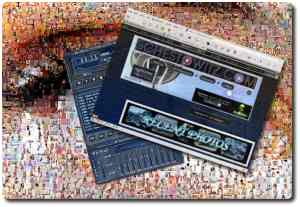
This picture was funnier when Windows Vista was still called Longhorn
 t was roughly a decade ago when a mysterious journalism trend emerged. All of a sudden, in a matter of a few years, major newspapers began to migrate their content to the Internet and shield their on-line popularity. A frantic stampede — that was — to what would become the future of journalism. Editors came to realise that it was only a matter of time before readers would take advantage of technology. This new form of publication had very many conceivable advantages:
t was roughly a decade ago when a mysterious journalism trend emerged. All of a sudden, in a matter of a few years, major newspapers began to migrate their content to the Internet and shield their on-line popularity. A frantic stampede — that was — to what would become the future of journalism. Editors came to realise that it was only a matter of time before readers would take advantage of technology. This new form of publication had very many conceivable advantages:
- Being able to isolate uninteresting bits from the unmissable (content tailoring)
- Ability to save article (electronic storage)
- Reduction in cost (physical properties)
- The ability to share articles with friends and colleagues (reproducibility)
- Being able to performs searches (indexing technology)
Whatever gains one can imagine, most likely computers will have them. So, paper was bound to become obsolete sooner or later.
Several years later, particularly in the beginning of this millennium, blogs (Web logs) began to emerge. Suddenly, people had easy access to powerful publication platforms. The growth of blogs in terms of number and amount of content was explosive and their extent soon became excessive. How could a mainstream newspaper keep up with blogs and attract the masses? Journalists became threatened. Later came he feeds frenzy, which unlike blogs, has not reached its anti-climax, yet. Soon enough, operating systems (as we know them) might be put aside in favour of on-line operating systems. So who will be the next victim if not Microsoft? And who will it be that inherits the Earth? Google and Yahoo are among the contenders. For Microsoft, who have made many enemies, the last resort has become software patents, which they are piling up like connonballs for application at the Patents Office.
Slow movement towards on-line data management has been well-comprehended by all fronts. Microsoft attempt to conquer the Net as they are investing a heavy load of resources to reach that goal. From this site alone, MSNBot fetched 13968 pages, trailing by just a decent margin behind Google with 20627 pages in the month of July. Without a doubt, Microsoft have gained plenty of bandwidth and computer power.
It was not long ago that Bill Gates gave his engineers just 100 days to steal Google’s idea of AJAX-enabled maps (satellite and hybrid maps too). In response to Mozilla Firefox, which kept Microsoft on their toes, a decision was make to update rusty Internet Explorer 6 and leap to Internet Explorer 7. Not surprisingly, many ideas were stolen from Firefox, which was considered the main danger at the time.
Later on, Microsoft decided to embed RSS support in the kernel of Windows Vista (formerly Longhorn). Again, this step was taken in order to compensate for the considerable lag behind some recent technologies. Gates et al. were then scheming to buy off popular bloggers — a shrewd idea due to general Microsoft disdain in popular and influential blogspheres. The main complaints of bloggers, along with some major voices in the media, was the lack of inter-operability, being proof that Microsoft are patronising the rest of the IT world with utter platform discrimination. They simply fail to internalise that it is nice to be important, but even more important to be nice (open).







 Filed under:
Filed under: 

 t was roughly a decade ago when a mysterious journalism trend emerged. All of a sudden, in a matter of a few years, major newspapers began to migrate their content to the Internet and shield their on-line popularity. A frantic stampede — that was — to what would become the future of journalism. Editors came to realise that it was only a matter of time before readers would take advantage of technology. This new form of publication had very many conceivable advantages:
t was roughly a decade ago when a mysterious journalism trend emerged. All of a sudden, in a matter of a few years, major newspapers began to migrate their content to the Internet and shield their on-line popularity. A frantic stampede — that was — to what would become the future of journalism. Editors came to realise that it was only a matter of time before readers would take advantage of technology. This new form of publication had very many conceivable advantages: Also on the same topic, it is rather frustrating that it took several years until Microsoft decided to fix the bugs inherent in Internet Explorer 6 and add valuable yet fundamental features like support for feeds. This move was a result of Firefox, of course, but more sadly,
Also on the same topic, it is rather frustrating that it took several years until Microsoft decided to fix the bugs inherent in Internet Explorer 6 and add valuable yet fundamental features like support for feeds. This move was a result of Firefox, of course, but more sadly, 

 emonstration below is no screenshot. It is a fake composition which I pulled together under the
emonstration below is no screenshot. It is a fake composition which I pulled together under the 